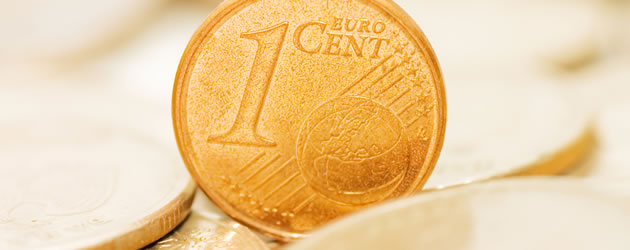
The Euro’s early 0.2 cent gains against the Pound were erased by the end of the day yesterday as markets grew jittery towards the single currency in response to the potentially destabilising political climate in Italy – the Eurozone’s third largest economy.
The Sterling to Euro exchange rate (GBP/EUR) had initially fallen
The Sterling to Euro exchange rate (GBP/EUR) had initially fallen as low as 1.1864 on the back of a mixed British second quarter GDP report. The final revision to the UK’s economic performance in Q2 revealed that GDP expanded by 0.7% on a quarterly basis, as expected, but that GDP only advanced 1.3% on a yearly basis, which was -0.2% slower than previously announced.
The Pound was also subject to the sobering news that Business Investment shrunk by -2.7% between April and June, bringing year-on-year investment down by a staggering -8.5%. A larger-than-expected widening of the UK Current Account, from -£12 billion to -£13 billion, completed Sterling’s morning woes.
However, the Euro’s rallies were cut short during the afternoon as political tensions threatened to spill over in Italy. Members of Silvio Berlusconi’s People of Freedom party say they will pull out of Italian Prime Minister Enrico Letta’s coalition government if the 76-year-old media magnate’s ban from office is enforced.
Italian President Giorgio Napolitano rebuked the People of Freedom party’s boycott threats as “absurd” and reminded that court rulings must be respected, not rallied against, if Italy is to maintain any international credibility.
“The application of a definitive conviction…is a constituent part of any state based on the rule of law”.
Despite President Napolitano’s hardline stance, investors are aware that the three-time Prime Minister holds massive sway over his party: Berlusconi will not go down lightly. If MPs from the People of Freedom do in fact pull out of the coalition government then it will lead to fresh snap elections, which analysts fear could prove detrimental to the Southern Eurozone’s attempts to plug its way out of an eight quarter long recession.
Political stability is vital for Italy to attract foreign investment and any further hints that Enrico Letta’s government could be torn apart are likely to hurt the single currency. The Italian stock market shed nearly -2% yesterday and 10-year government debt yields rose 10 basis points to 4.34%, in reaction to the Berlusconi debacle.
This is not the first time that the slick-haired business tycoon-cum-politician has spooked investors: back in November 2011 Berlusconi was ousted from power as his reckless handling of the Eurozone debt crisis caused Italian debt yields to soar to unsustainable levels; and earlier this year markets were gripped with fear as ‘Bunga-Bunga’ Berlusconi announced that he was running for a fourth stint as Prime Minister.
Later on today German CPI inflation is expected to print at 1.5% and Eurozone Economic Confidence is predicted to come in at a slightly improved 96.0. The Pound to Euro exchange rate (GBP/EUR) has not surpassed the psychologically significant 1.2000 mark since January but, if political tensions remain heightened in Italy, it is possible that Sterling could mount a rally above 1.2000 in the next few weeks.

Comments are closed.